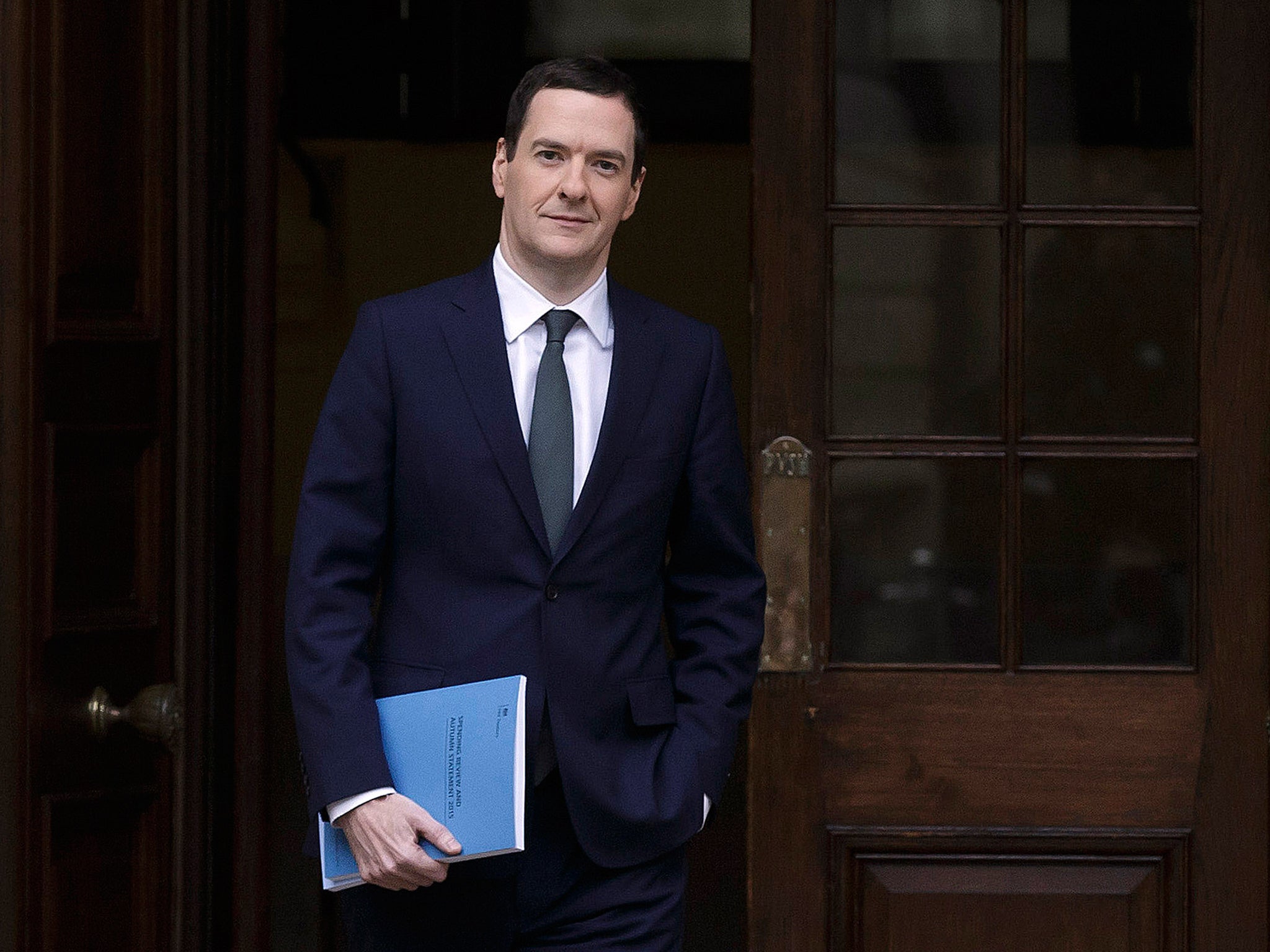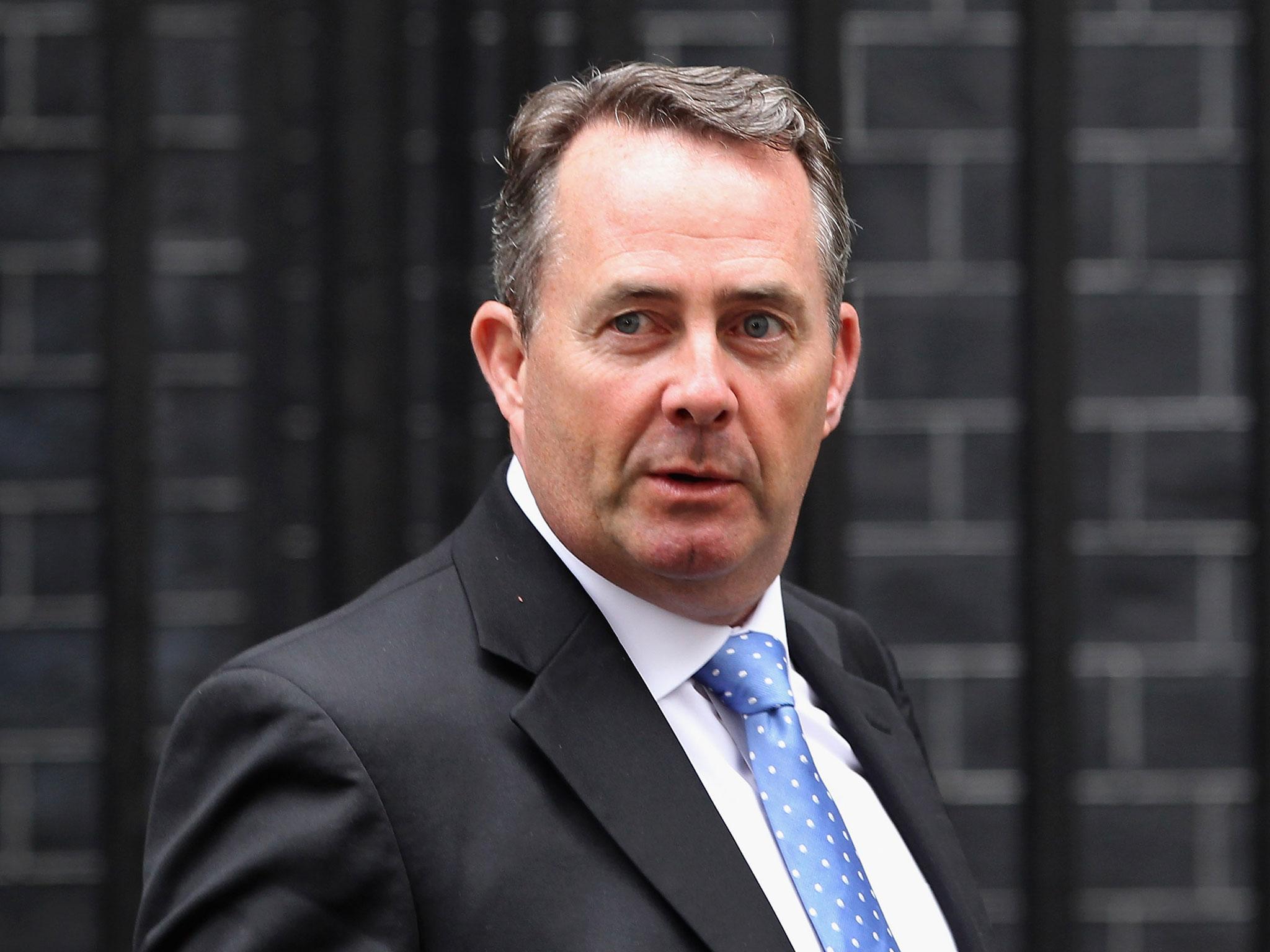Autumn Statement puts George Osborne back on track to move next door to Number 10
After a rocky few months after his misjudgement on tax credits, the Chancellor's most important target is in sight again


George Osborne sometimes feels he can’t win. After placating moderate Conservative MPs by abandoning his cuts to tax credits, he is now under fire from the right, which is accusing him of abandoning austerity.
The Chancellor did not want or expect his Autumn Statement to produce front-page headlines such as “Whatever happened to austerity?” (Daily Mail) and “The End of Austerity” (Daily Telegraph). In media interviews yesterday, he moved to reassure Tory MPs who are hawkish on the deficit. “It’s not an end to the difficult decisions,” he said.
Mr Osborne also insisted he is “100 per cent focused” on his “all-consuming and all-absorbing” job and is not thinking about taking over from David Cameron, who will step down as Prime Minister before the 2020 general election. Even his Tory backbench allies give a wry smile to that one. Of course the Chancellor is also focused on winning the ultimate prize. Anyone so close to it would be.
His own ambition was not his only motivation on Wednesday, but it is no accident that it has boosted his prospects. At one level, his climbdown on tax credits was a pitch by the Tories for the political centre ground vacated by Labour. It allowed them restate their claim to be the party of working people -- tarnished by hitting the “strivers.”
But the U-turn was also about Brand Osborne. The tax credit cuts were his baby and if he had merely softened the blow with a series of complicated concessions, it could have proved toxic for both him and his party. Yesterday he tried to turn his initial mistake to his advantage, saying it was not a weakness to listen to criticism.

Although his aides insist it was all about doing the right thing for the country, the Chancellor closed off a potent line of attack for one of his rivals for the Tory crown – Boris Johnson, a vocal opponent of the tax credits cuts. Mr Johnson had also opposed plans to cut police numbers. So had Theresa May, another likely runner in the Tory leadership race. Mr Osborne’s unexpected decision to protect the police budget was also about the big picture – again, pushing Labour off the pitch by saying that only the Tories offer national and economic security. After the Paris massacre, the threatened 20 per cent cut for the police was very dangerous. His retreat could be seen as a victory for the Home Secretary, but it also stopped her reminding Tory activists she was on the right side of the argument if the cuts had gone ahead.
Some Tory MPs say Mr Osborne views politics as a game of chess and, as usual, is thinking several moves ahead. Under the party’s leadership election rules, Tory MPs choose a shortlist of two candidates, from which the party’s members make the final decision.
There is speculation at Westminster that the Chancellor’s game is to occupy the centre ground of the Tory party as well as the wider political field. That might just keep Mr Johnson off the shortlist and create a vacancy for a right-wing challenger with less appeal to grassroots Tories than the popular Mayor of London. It could be Ms May, but she was the moderniser who once described the Tories as the “nasty party”. To restore her credentials with its members, she might have to resign from the Cabinet to lead the Leave campaign in the in/out EU referendum – a big gamble.
Another right-wing contender could be Liam Fox, the former Defence Secretary. He advertised his wares as a fiscal hawk this week by arguing that the “proceeds of growth” should be shared between deficit reduction and tax cuts – not higher spending than planned, as Mr Osborne decided.
His day job may be “all-consuming and all-absorbing,” but the Chancellor’s most important target is not his welfare cap, which he will breach for three years after his tax credits rethink, or even his fiscal charter, which he will meet by retaining his planned £10bn surplus in 2020-21. It is his target to move next door to Number 10. After a rocky few months after his misjudgement on tax credits, his Autumn Statement has put him back on track to achieve it.
Join our commenting forum
Join thought-provoking conversations, follow other Independent readers and see their replies
Comments
Bookmark popover
Removed from bookmarks